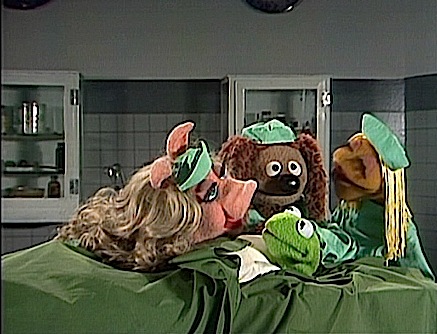|
Part 2 of 2; you can find Part 1 here. Disclaimer: The following is based on my experiences and observations at about a dozen hospitals across the country. While I feel like it generally applies to the hospital experience (including some hospitals with glistening and lofty reputations for customer service and/or academic prowess), I can’t say it applies to every or even most hospitals out there. And again, just to be clear, for the hospital staff who have and will care for me: Nurses are awesome, and none of this is their fault. 3. Your room will be squeaky clean when you arrive, and will be kept that way I imagined a beleaguered but prideful cleaning crew dousing surfaces in bleach water multiple times a day, scrubbing every C. diff- and MRSA-tainted inch. In my experience, hospital rooms are cleaned less thoroughly than many hotel rooms. On my first day in one room, I found a bloody streak in the shower, brownish spatters on the floor, dead flies in corners. And you can be sure it’s not getting any cleaner over the course of your stay – it basically consists of a quick mop-swipe of the floor and emptying of your trash. If there’s a sample-collection “hat” or two in the toilet (which there will be), you can be sure that the custodians won’t get anywhere near it (and the LPN nurse won’t replace it with a new one either, unless you ask). The LPN nurses are actually pretty good about changing bed linens regularly, and I recommend doing this as much as possible, but it can take like 20 minutes and you’re stranded in your gown in some stained upholstered chair soaking your gown with Death Row sweat and trying to wait to vomit in semi-private. 4. The nurses will respond as soon as you call them Nurses are awesome, and they can make or break your hospital experience. But they work 12-hour shifts, often without a true lunch break, and are always slammed with too many patients. So they likely won’t be able to refill your water jug right away, or help you to the bathroom right away, or do anything right away but save your life. Which is what really matters. So if at ALL possible, try to always have a friend or family member with you to do these little comfort measures for you. And know that you’ll do the same for that person if/when they need you to. 5. Things will make sense You endured a visceral trauma while unconscious. You will probably never see a video of what happened during surgery (I have seen a video of someone else having my same surgery – it’s a disturbing mix of intriguing, soothing, and disturbing). But your body knows. Things were pulled out and apart, sliced and Frankenstein’s-Monstered back together. And this disconnect between what your body knows and what your brain knows can feel a little weird. You never saw or heard or felt any of it while it happened (hopefully), but you know it did. But be prepared to feel disoriented and a little scared and confused about what just happened to your body. Even if you know it was the right thing to do, and your surgeon has walked you through what was done step-by-step, it still doesn't feel quite right, like you flip through the pages of the last week of the book of your life and one page is blank. But that feeling does abate slowly, especially as you get to leave the hospital and return to familiar surroundings. 6. You'll start feeling better really soon and can get back to work/school/housework Once you come off the pain meds and start preparing to go home, it can start to hit you – this is a lot harder than I thought it would be. Maybe you won’t feel this way, and you will feel great soon. Or maybe you had to have the surgery because of a blockage from inflammation and malformation (like me), but the surgery introduced a whole new set of symptoms that then have to be contended with. And that completely sucks. Because everyone wants to ride out of the hospital on a parade float, with the princess wave that says, “I did it, I’m a winner, I made it through!” And it’s a pretty big downer to have to tell people, “I mean, yeah, I guess I’m better than I was a month ago, but I’m not great like some doctors said I might be. I’m really tired still, and my stomach is huge and my farts smell different and I still can’t eat lettuce.” But that doesn’t mean you won’t feel better, ever. I would just say, whatever recovery time your doctor tells you, that’s your stay-at-home recovery time, not your back-to-normal recovery time. And don’t take advice from doctors or other crazily driven and ambitious and un-sick people about when to return to work or school. These people will tell you that you can totally start grad school in two weeks post-surgery. These people are probably wrong. Ask someone who has actually had the surgery before, who is also a reasonable human being who gets 8+ hours of sleep and doesn’t run triathlons. And when you first return home, don’t be like me. Don’t try to secure a graduate TA position and respond to your well-wishers' emails and read a book about neuroscience. Decide ahead of time that your first week will be a stream of streaming TV. Ooh, and hire a maid service in advance for the day before planned discharge, so that at least your home is as spotless as your hospital room should've been. What other false surgery expectations did you have? Was your hospital room actually spotless? Let me know @katiefmclendon
|
Gut Check
Archives
January 2018
Categories |

 RSS Feed
RSS Feed